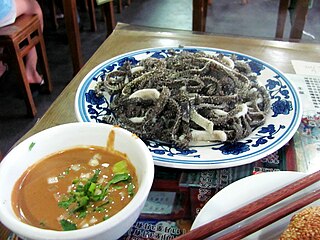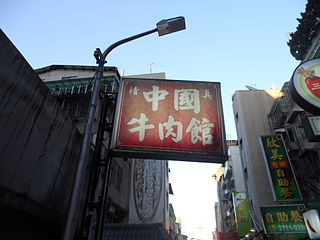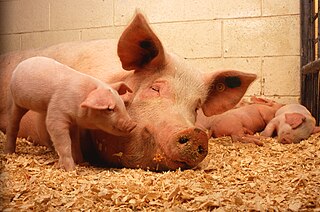 W
WHalal ; is an Arabic word that translates to "permissible" in English.
 W
WBaodu is a halal tripe dish that is part of Beijing cuisine. It is traditionally prepared by the Muslim Hui people.
 W
WBellamy's Organic is an Australian organic infant formula and baby food producer, and was a wholly owned subsidiary of Bellamy's Australia before being acquired by China Mengniu Dairy.
 W
WAll-Bran Buds is a variety of All-Bran cereal manufactured by Kellogg's. It is a wheat bran cereal that is a source of high fiber and psyllium. It is available in the United States and Canada. It used to be available in the United Kingdom during the 1970s and 1980s. The cereal was available in Ireland until the mid-1980s. As of July 2020, Amazon and Walmart are out of stock on this cereal and Kellogg's are not showing All Bran Buds on their product page. It is not known if the Kellogg Company has stopped production of this product.
 W
WA camel is an even-toed ungulate in the genus Camelus that bears distinctive fatty deposits known as "humps" on its back. Camels have long been domesticated and, as livestock, they provide food and textiles. Camels are working animals especially suited to their desert habitat and are a vital means of transport for passengers and cargo. There are three surviving species of camel. The one-humped dromedary makes up 94% of the world's camel population, and the two-humped Bactrian camel makes up 6%. The Wild Bactrian camel is a separate species and is now critically endangered.
 W
WIn Islamic law dhabīḥah is the prescribed method of ritual slaughter of all lawful halal animals. This method of slaughtering lawful animals has several conditions to be fulfilled. The name of God or "In the name of God" (Bismillah) has to be called by the butcher upon slaughter of each halal animal separately, and it should consist of a swift, deep incision with a very sharp knife on the throat, cutting the wind pipe, jugular veins and carotid arteries of both sides but leaving the spinal cord intact.
 W
WA halal snack pack is a fast food dish, popular in Australia, which consists of halal-certified doner kebab meat and chips. It also includes different kinds of sauces, usually chilli, garlic, and barbecue. Yoghurt, cheese, jalapeño peppers and tabbouleh are common additions. The snack pack is traditionally served in a styrofoam container, and has been described as a staple takeaway dish of kebab shops in Australia.
 W
WHalal tourism is a subcategory of tourism which is geared towards Muslim families who abide by rules of Islam. The hotels in such destinations do not serve alcohol and have separate swimming pools and spa facilities for men and women. Malaysia, Turkey and many more countries are trying to attract Muslim tourists from all over the world offering facilities in accordance with the religious beliefs of Muslim tourists. Currently, there exist no internationally recognized standards on Halal tourism.
 W
WThe Islamic dietary laws (halal) and the Jewish dietary laws are both quite detailed, and contain both points of similarity and discord. Both are the dietary laws and described in distinct religious texts: an explanation of the Islamic code of law found in the Quran and Sunnah and the Jewish code of laws found in the Torah and explained in the Talmud.
 W
WIslamic jurisprudence specifies which foods are halāl and which are harām. This is derived from commandments found in the Quran, the holy book of Islam, as well as the Hadith and Sunnah, libraries cataloging things the Islamic prophet Muhammad is reported to have said and done. Extensions of these rulings are issued, as fatwas, by mujtahids, with varying degrees of strictness, but they are not always widely held to be authoritative.
 W
WThe legal aspects of ritual slaughter include the regulation of slaughterhouses, butchers, and religious personnel involved with traditional shechita (Jewish) and dhabiha (Islamic). Regulations also may extend to butchery products sold in accordance with kashrut and halal religious law. Governments regulate ritual slaughter, primarily through legislation and administrative law. In addition, compliance with oversight of ritual slaughter is monitored by governmental agencies and, on occasion, contested in litigation.
 W
WThe Slaughter of Poultry Act 1967 was a piece of UK legislation that provided for the humane slaughter, for certain commercial purposes, of poultry. Exemptions were made for slaughter by kosher and by halal means.
 W
WThe Taiwan Halal Center is an organization that promotes the Halal industry in Taiwan.
 W
WThe Taiwan Halal Integrity Development Association is a certification body that produces Halal certificates in the Republic of China. The association is based in the Taipei Cultural Mosque in Taipei.
 W
WIn some religions, an unclean animal is an animal whose consumption or handling is taboo. According to these religions, persons who handle such animals may need to ritually purify themselves to get rid of their uncleanliness.